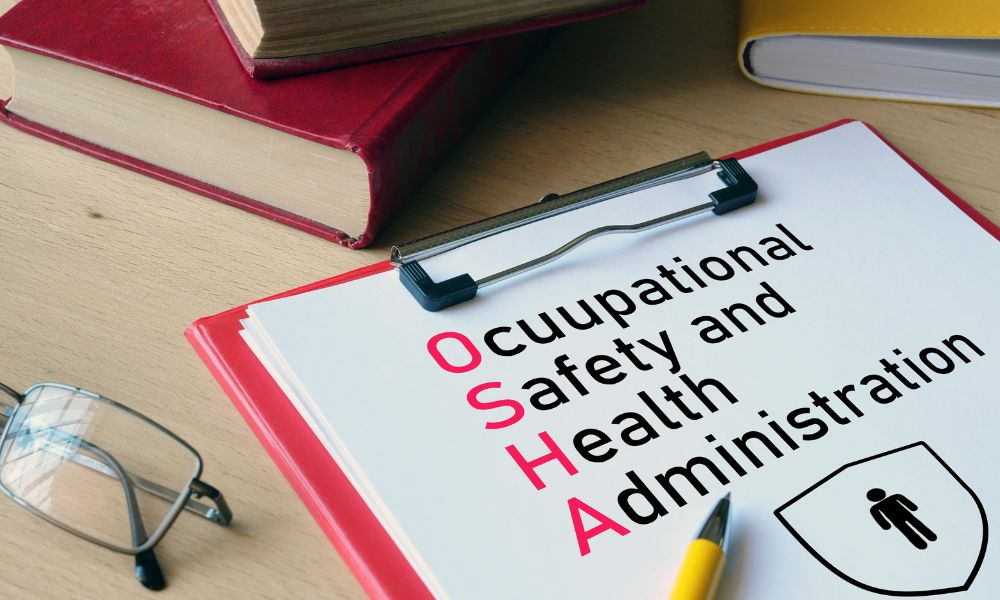Working in a hazardous environment can be dangerous, and it is important to keep up with the latest laws related to bloodborne pathogens. To ensure that everyone is well-informed of their duties and rights when it comes to handling these infectious agents, training on bloodborne pathogens must be done for those who work with them.
In this article, we will explore who is obligated to get trained regarding bloodborne pathogens and the law. We will also take a look at why such training is required as well as how one can go about receiving proper instruction on the matter.
Legal Obligations for Training on Bloodborne Pathogens

In many cases, employers are required by law to ensure their employees receive adequate training on bloodborne pathogens. The Occupational Safety and Health Administration (OSHA) has established a set of regulations that require employers to provide such training for their workers.
Depending on the industry in which they work, some individuals may be subject to additional obligations as well. For instance, healthcare workers must adhere to the standards laid out in OSHA’s Bloodborne Pathogens Standard.
This requires them to be trained in proper procedures for handling dangerous materials and disposing of contaminated items safely. Furthermore, they must also understand how diseases like HIV/AIDS can be transmitted through contact with bodily fluids or blood products and know what steps to take if such exposure occurs. Employers in industries where hazardous chemicals are used often have additional responsibilities under OSHA’s Hazard Communication Standard (HCS).
This standard requires them to educate their staff about potential risks associated with certain substances and how these dangers can be avoided or minimized while working with them. It also mandates that safety data sheets containing detailed information about each chemical being used must be made available for all employees who handle them regularly.
Finally, regardless of occupation or industry, everyone must understand the importance of maintaining good hygiene practices when exposed to potentially infectious material–such as wearing protective gloves at all times when dealing with blood samples or other body fluids–to minimize the risk of infection from bloodborne pathogens like hepatitis B virus and HIV/AIDS. Employers should make sure their staff is aware of these requirements so they can protect themselves and others from harm due to lack of knowledge or carelessness on the job
Employers Responsibility to Educate Employees on Bloodborne Pathogens

Employers have a responsibility to their employees to educate them on the dangers and prevention of bloodborne pathogens. This is not only a moral obligation, but also an important legal requirement under OSHA’s Bloodborne Pathogens Standard. With such serious implications, employers must ensure that their workforce receives appropriate training to protect themselves from potential exposure.
Training should cover topics such as recognizing potentially hazardous materials, understanding how infections are spread via contact with contaminated surfaces or bodily fluids, proper usage and disposal of protective equipment, safe handling practices for both specimens and laboratory waste products, and reporting procedures for any incidents that might place workers at risk. Employers should also guide how employees can take steps to protect themselves while working in areas where they may come into contact with these substances.
By taking the time to properly educate their employees about bloodborne pathogens through comprehensive training sessions led by qualified professionals, employers can help ensure that all necessary safety measures are taken to prevent any instances of contamination or infection occurring within their workplace.
Employee Rights Regarding Training on Bloodborne Pathogens

Employees have the right to receive proper training on bloodborne pathogens. This training should include information about how these diseases are spread, how to avoid contact with them, and what measures can be taken if contact is made.
Employees should also be provided with the necessary safety equipment, such as gloves and masks, to protect themselves from potential exposure. Employers must keep records of this training for future reference and provide refresher courses when necessary.
In addition, employees have the right to ask questions or voice their concerns regarding any aspect of their bloodborne pathogen training without fear of retribution.
Consequences of Failing to Comply with Regulations Regarding Training

Failure to comply with regulations regarding training on bloodborne pathogens can have serious consequences, from costly fines to potential legal action. Employers that do not provide their employees with the appropriate training risk having their workplace deemed unsafe and uninhabitable.
Employees who are not provided with the necessary information may be at greater risk of contracting a disease or illness due to contact with contaminated materials. In addition, employers can also face civil lawsuits for failure to provide adequate safety measures and proper training.
Employers and workers alike need to understand their obligations when it comes to protecting themselves and others in the workplace from harm due to hazardous materials such as bloodborne pathogens. Failing to comply with these regulations can result in significant financial losses, disruption of normal business operations, criminal charges, or even imprisonment if found liable for negligence or recklessness leading to an accident involving hazardous materials.
Conclusion
The legal obligations to receive training on bloodborne pathogens vary from state to state, however, it is always recommended. Companies should have a protocol in place for the management of bloodborne pathogens and make sure that all employees who may come in contact with them are trained accordingly.
MyCPR NOW offers comprehensive online training courses that can help companies ensure their employees are aware of best practices when handling hazardous substances like bloodborne pathogens. Ultimately, while the law may dictate certain regulations regarding training for those exposed to such hazards, there is no substitute for knowledge and safety protocols when it comes to protecting your staff members and yourself from exposure.


